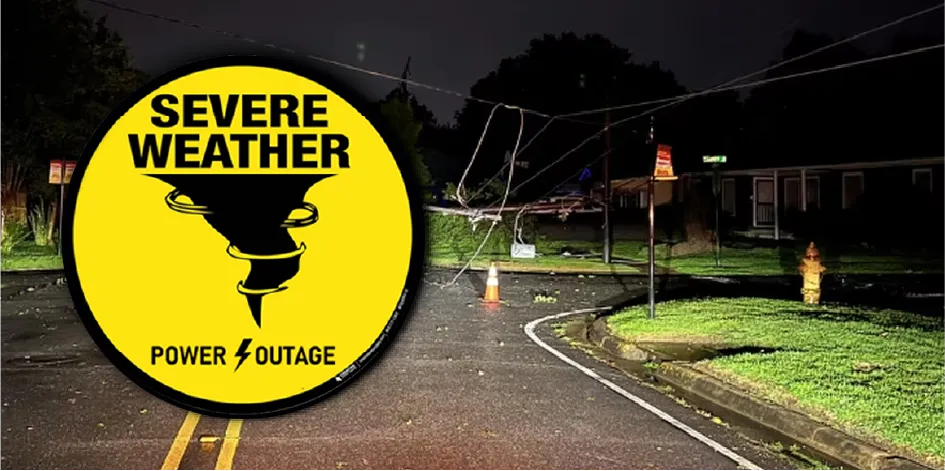
Severe Weather - Hire a Licensed Electrician to Install a Generator
- Category: Blog

Severe weather can occur at any point throughout the year with certain seasons being particularly prone to more frequent and intense storms. Ensuring your safety requires constant preparedness reguardless of the season or time of year. Power outages can occur for various reasons or a combination of factors. Severe weather conditions such as strong winds, hurricanes, typhoons, tornadoes, extreme temperatures, hail and other natural events like floods, solar flares and earthquakes can lead to power outages. Other contributors of power outages are equipment failure, human error, animals, cyberattacks and grid overloads during periods of high demand. Portable generators can serve as a temporary power source during power outages, but they can also pose deadly risks if improperly installed or operated. The Electrical Safety Foundation International (ESFI) encourages consumers to increase their knowledge of electrical safety, as understanding the hazards associated with portable generators could save lives.
Here are some important facts and statistics:
-
Between 1999 and 2012, 739 carbon monoxide deaths related to portable generators were reported to the Consumer Product Safety Commission (CPSC). Additionally, 61 fatalities were linked to both a generator and another consumer product, with one case involving both a generator and another engine-driven tool.
-
An alarming 69% of the fatalities related to generators occurred inside homes, mainly when generators were placed in living areas or basements. Another 24% occurred when generators were used in attached garages or sheds.
-
Power outages, often weather-related, were the leading cause of generator usage resulting in non-fire carbon monoxide fatalities, accounting for 30% of such deaths.
-
Notably, 50% of all carbon monoxide deaths associated with portable generators occurred during the winter months (November – February).
To ensure your family's safety and the proper use of generators, especially those that are incorrectly installed, consider these generator installation safety tips:
Generator Installation Safety Tips:
-
ESFI strongly recommends hiring a licensed electrician to install home generators, ensuring compliance with all local electrical codes.
-
A licensed electrician will guarantee that the generator is not directly connected to household wiring without an appropriate transfer switch. This precaution prevents power from generators flowing back along power lines, which could electrocute anyone, including utility line workers making repairs.
-
A licensed electrician will also ensure that your generator is properly grounded.
Additionally, installing a remote inlet plug outside your home, correctly connected to your electrical panel, enables you to place the generator outdoors, avoiding general safety issues while safely connecting it to your home's electrical system.
Remember, the ultimate purpose of a generator is to provide electricity and maintain power in your home. However, it's crucial to emphasize that this is not a DIY project. If the electricity powering the generator isn't installed correctly by a licensed electrician, the consequences can be severe, with spoiled food in the fridge being the least of a homeowner's concerns.


